Sinead Leahy
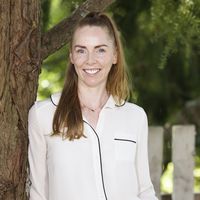
Sinead Leahy is the Principal Scientist at the New Zealand Agricultural Greenhouse Gas Research Centre (NZAGRC).
Sinead holds a Ph.D. in microbiology and biochemistry and has worked in a variety of research and advisory roles in New Zealand. At the NZAGRC, Sinead oversees the development of scientific research programmes and initiatives aimed at reducing greenhouse gas emissions from agricultural activities. Her work includes collaborating with farmers, rural professionals, industry leaders, science, and government agencies to identify and implement innovative solutions to this complex challenge.
Sinead is recognised for her expertise to the field of agricultural greenhouse gas science. She is a member of the international Scientific Oversight Committee for the Global Methane Hub Enteric Fermentation R&D Accelerator Program, and she is the New Zealand Co-Chair of the Livestock Research Group of the Global Research Alliance on Agricultural Emissions.
Tek Sapkota
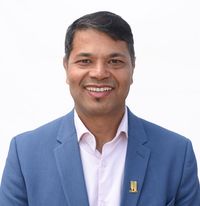
Tek Sapkota leads the Climate Change Group in CIMMYT, member of the Climate Investment Committee of CGIAR, and currently leading the CGIAR’s 2025-30 portfolio development on climate action for resilient food, land and water systems. He is particularly involved in cutting-edge research to accelerate adaptation & low-emission actions across food, land, and water systems. These efforts aim to sustainably nourish a growing global population while enhancing food, nutrition, and water security as well as livelihoods of small-scale producers.
He served in IPCC as Lead author as well as Review editor currently working as coordinating lead author for Global Environmental Outlook (GEO7) of UNEP. He is an agricultural expert in the India GHG platform. He is an associate Editor of “Nature Scientific Report” and “Frontiers in Sustainable Food Systems” journals. He holds PhD in Agriculture, Environment & Landscape from Sant’Anna School of Advanced Studies, Italy.
George Wamukoya

George Wamukoya, Kenia, team leader of AGNES, and lead negotiator on agriculture for G77
Guillaume Gruère
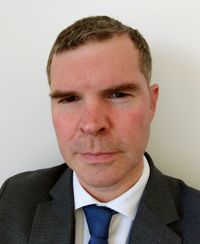
Guillaume Gruère heads the Agriculture and Resource Policies Division at the OECD, which oversees OECD’s policy work on agriculture and fisheries, including on climate change in agriculture.
Previously, he spent 10 years as a Senior Policy analyst leading diverse projects on climate change, water and resilience issues. Prior to joining the OECD, he was a Senior Research Fellow at the International Food Policy Research Institute (IFPRI) in Washington DC.
Mr Gruere has published over 90 peer-reviewed publications, including two articles that received research awards from the Agricultural and Applied Economics Association. He holds a PhD in Agricultural and Resource Economics from the University of California Davis and a MS in Environment and Natural Resource Economics from AgroParisTech.
Eva Lini Wollenberg
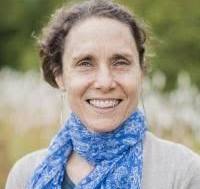
Lini Wollenberg leads the Policy and Institutions program for Climate Action at the Alliance of Bioversity and CIAT and Gund Institute for Environment, University of Vermont. From 2009 to 2021 she led the Low-Emission Development research theme for CCAFS, the CGIAR Research Program on Climate Change, Agriculture and Food Security. Prior to that Lini worked with the Center for International Forestry Research (CIFOR) based in Indonesia. She received her PhD in Wildland Resource Science from the University of California, Berkeley, USA. Her expertise is in climate change mitigation, land use, and social inclusion. She lived for 14 years in Asia.
Florian Humpenöder

Dr. Florian Humpenöder (ORCID 0000-0003-2927-9407) is a senior scientist at the Potsdam Institute for Climate Impact Research (PIK) in Germany. He is a member of the Land-use Management Group within the department for Transformation Pathways at PIK.
Florian works with Integrated Assessment Models (IAMs) to develop global-scale transformation pathways compatible with the 1.5°C target of the Paris Agreement and the UN Sustainable Development Goals (SDGs). His core expertise are future scenarios of global land use under varying assumptions such as socio-economic development, land-use regulation, and dietary shift. Florian contributed to the IPCC Special Report on Climate Change and Land (SRCCL) and the AFOLU chapter in the IPCC AR6 WG3 report.
Harry Clark
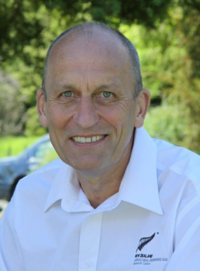
Harry Clark is the Chief Scientist of the New Zealand Agricultural Greenhouse Gas Research Centre (NZAGRC), a government funded entity established in 2009 to develop technologies and practices to reduce GHG emissions from the New Zealand agricultural sector. He is also the Special Representative of the Global Research Alliance on Agricultural Greenhouse Gases (GRA). He was a member of New Zealand’s Interim Climate Change Committee from 2017 to 2019 and served as one of New Zealand’s seven Climate Change Commissioners from 2019 to 2021.
His research interests for the last 20 years have focussed on the quantification and mitigation of enteric methane emissions from grazing ruminants. He was a Lead Author for the agricultural chapters of last two IPCC Climate Change Assessment Reports (AR5 and AR6).
He was appointed a member of the New Zealand Order of Merit in 2014 for services to environmental science.